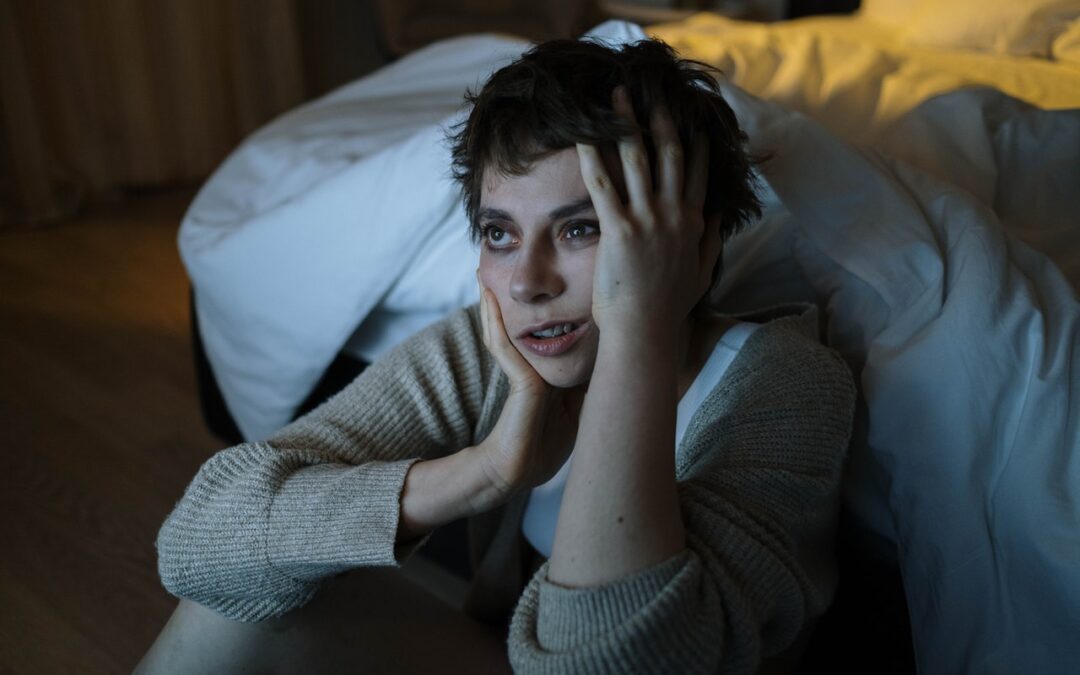There might be an interesting connection between sleep quality and hormone level that is worth knowing about
Star reader Rachel sent me another fascinating article, this time about the effects of hormone levels on sleep. I’ve battled sleep issues for decades — I relate! The article is very detailed and offers lots of good advice for various types of troubled sleep.
One problem – unless you’re super aware or have a fancy tracking watch, you might need to take a few weeks and record what’s going on.
If you’re a rebel like me, whose eyes glaze over at the mere mention of the word “tracking,” (ugh!) you might be comforted to hear that there’s hope down the road, when you hit menopause. Even though menopause itself is often associated with low quality sleep, it seems that after the process is complete, sleep improves.
“We think hormone fluctuations can be more bothersome to some women than their actual hormone levels,” (Prof. Mary Jane Minkin, Yale School of Medicine)
So I figure, if I can just ignore the problem long enough, I won’t have to track it! That sounds like a plan for me. I must warn you though, that Perimenopause can easily last 15 years, so that could be a long time to wait! The fact that this is a reasonable deal in my mind, tells you exactly how I feel about tracking…
If, however, you’re a bullet journal kind of person, love a good excel spreadsheet or a tracking app – this article is for you.
Let me know if it helps!
Meanwhile, I’m happy to support your sleep-deprived busy self in other quests to improve your wellbeing, with only minimal tracking.
Want to beta test my new Mental Load buster program for free? Click here to email me for dates and details!



Quality sleep is a game-changer for sure. While I can’t relate to the hormone cycles as much, I can definitely appreciate how a poor sleep combined with hormone changes is recipe for a difficult day/week! I always appreciate your tips and advice around better habits we can put in place for a better sleep, Shlomit!
Thanks Shlomit, I think I love to track, until it comes to having to wear a clunky watch to bed every night. Then I am out. I guess I wonder how knowing that I got terrible sleep last night will help me rather than add to my anxiety about not sleeping so much?
Sleep is always, always, ALWAYS #1. It impacts everything from focus to food cravings to neurotransmitters/mental health to stress response…all of it! And naps count!
This is curious to me Shlomit, I’ve always prided myself on being a great sleeper – anywhere, anytime – and in many ways this is still true, though with menopause, I have definitely noticed changes. I feel like the number of nights I toss and turn is higher than I remember earlier in my life. I’ll take a closer look at the article. I track enough things in my life. I’m not sure I’m up for tracking more and I do not have fancy watch that will track for me (my current watch is more like jewelry). I think I’ve resigned myself to live with this the best I can. Hmmm….
Yup… I totally get that! If it’s any consolation, my late mom had a few rougher years (not terrible) and then returned to being a great sleeper in her 60’s and 70’s. She slept like a teenager. Unbelievable. 😉
I have been delightedly tracking my sleep for years; it’s almost a hobby! 🙂 Thank you for the article!
Are you using a smart watch?